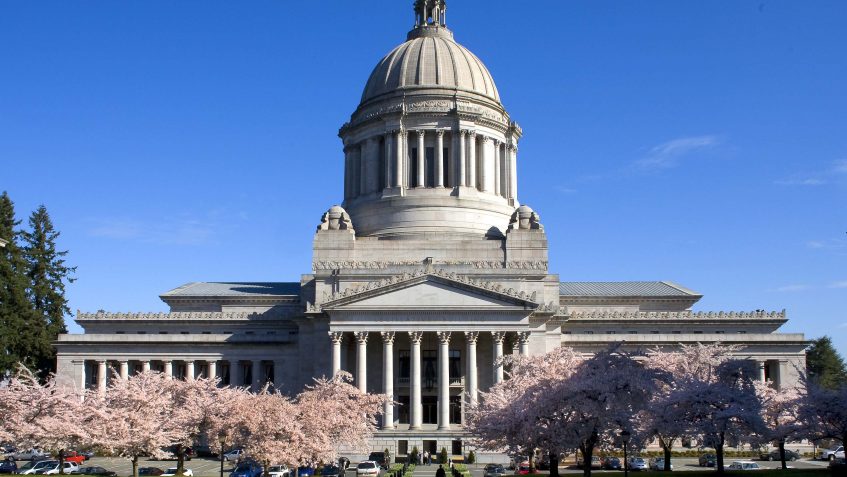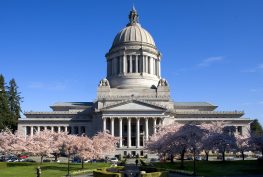OLYMPIA – Budget leaders in the Washington State Senate proposed a $7.9 billion capital construction budget today, targeting investments in affordable housing, school construction, land preservation and environmental protection, and education. The proposal, if passed, would set a record for the largest ever investment in the state’s Housing Trust Fund.
The budget outlines state infrastructure spending for the next two years and stays within the state’s constitutional debt limit – an important step to protect the state’s historically high Aaa credit rating and avoid higher debt service payments that could financially hinder future state budgets.
Details and specific project lists are available at fiscal.wa.gov.
“This is a strong budget that steps up to the scale of the challenges facing our state, and does so in a fiscally responsible way that we can sustain into the future,” said Sen. Mark Mullet (D-Issaquah), Vice Chair of the Senate Ways & Means Committee. “When you look at the big issues – housing affordability, educating our future workforce, addressing our climate crisis –this budget makes major investments in addressing all of them. None of our challenges are going to be solved overnight, but this budget takes the steps necessary to meet our pressing needs while creating jobs and spurring economic growth.”
“This budget reflects meaningful steps towards centering outcomes for all our community members,” said Sen. Yasmin Trudeau (D-Tacoma). “I am proud of the important investments toward affordable housing, behavioral health, and education and thank my Senate colleagues, Democratic and Republican, for sharing a commitment to One Washington.”
“The Senate’s capital budget addresses needs all throughout Washington, and it provides funding for important projects in a wide variety of areas, from education and public safety to housing and water and more,” said Sen. Mark Schoesler, (R-Ritzville), and the Republican lead on the Senate capital budget. “I’m pleased our capital budget funds many projects that will help our colleges and universities, and I’m especially glad to see money for school seismic safety grants, which is important since our state is in earthquake country. I’m also pleased there is funding for water supply projects, which will benefit agriculture and other water users. The Senate’s capital budget takes a statewide approach, as it should.”
The major investments in the proposal align with priorities pursued by the Senate throughout its policy and budget work in the 2023 session.
A Home For Everyone: The Senate proposal invests $400 million in the Housing Trust Fund, which would be the most in state history. Additional funding will support land acquisition for the Housing Finance Commission, transit-oriented development legislation, and grants for the Connecting Housing to Infrastructure Program. In total, the proposal includes $625 million for housing-related investments.
Build Healthier Communities: The Senate proposes $650 million for a new forensic hospital at Western State Hospital, which is expected to allow for the recertification of the state’s largest psychiatric hospital by the federal government. The proposal also includes $141 million to increase the capacity for behavioral health care in the community, funding projects like Compass Health in Everett, the Jamestown S’Klallam Behavioral Health Center in Sequim, and the Nisqually Tribe Healing Village in Olympia.
Healthy Planet, Strong Economy: The proposal would set a record for the largest ever investment in the Washington Wildlife & Recreation Program, with $120 million proposed for conservation and outdoor recreation projects across Washington. The budget also makes major investments to improve floodplain resilience, acquisition and restoration of natural areas along Puget Sound, removal of barriers to fish passage, and other major projects within the state Department of Ecology. It also provides significant funding to water supply projects in the Columbia, Yakima, and Chehalis river basins.
Safety For All: The Senate proposal would provide funding for two State Patrol crime labs, to ensure that evidence can be forensically analyzed within the state’s 45-day goal. It also supports criminal justice regional training centers in Bellingham, Spokane, and Clark County, so that law enforcement officers statewide can get the training they need to do their jobs and protect the public. Another $40 million will go to school seismic safety grants, to help protect students and teachers from earthquakes, along with many other local and community projects.
Success For Every Child: The Senate budget makes crucial investments in education, from early learning, K-12, skills centers, all through higher education. It has $59 million in grants for the construction of early learning facilities, $588 million for the School Construction Assistance Program for K-12 schools, and an additional $100 million for modernization and improvements at small district and tribal compact schools – triple the funding level provided for those schools in the 2021-23 capital budget.
For higher education, the budget makes significant investments across the state, totaling $1.2 billion. Funding will help build Washington State University’s new Engineering Student Success Building and its Knott Dairy Farm, which is the source of milk for the famous Cougar Gold cheese, among other projects. At the University of Washington, funding includes state support for the Magnuson Health Sciences building, Anderson Hall, and wǝɫǝbʔaltxʷ Intellectual House. Western Washington University would receive funding to help upgrade its heating system to cleaner energy. Many other investments will go to other universities and state community and technical colleges.
The budget uses $319 million raised by auctions of permits under the Climate Commitment Act (CCA) to make investments in environmental protection, clean energy transition, and protecting communities disproportionately affected by pollution. Additional funding from CCA auctions will go to the operating and transportation budgets. CCA-funded projects in the capital budget include energy efficiency retrofits at our higher education institutions and other public buildings, improving air quality in overburdened communities, electrification at ports, and more.
Budget leaders highlighted their work to identify opportunities for federal and private matching dollars, to bring in additional investments without increasing state spending. Examples include major federal funding for two schools in Oak Harbor, replacement of the Joint Force Readiness Center run by Washington state’s Military Department at Joint Base Lewis-McChord, more than a hundred million federal dollars for salmon recovery and other conservation and recreation projects, and $50 million from Microsoft and $25 million from Amazon for housing-related investments.
The budget will be heard in the Senate Ways & Means Committee as a proposed substitute to SB 5200 at 4 p.m. on Monday, March 20th. Members of the press and the public who wish to watch the hearing can do so on TVW. It is expected to be passed out of committee and voted on by the full Senate later in the week.
The House will present its capital budget proposal in the coming days, and the two chambers will meet and negotiate their differences to reach agreement on a final version before the end of session. The last day of the 2023 session is Sunday, April 23.



